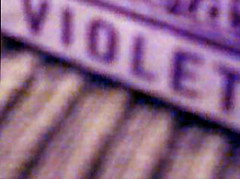Jill Dolan writes an extended critique on Wendy Wasserstein's Third, which she saw here in LA at the Geffen Playhouse. Go read her description and analysis of the play - she does it more thoroughly and better than I will.
The production is part of a season of the Geffen doing plays about women, only half of which are written by women. Two out of the three plays written by women criticize feminism, particulary academic feminism, and Third decidedly falls into that category. It's an intensely problematic play, Wasserstein's answer to King Lear reducing its female protagonist to begging forgiveness of a student in a dorm room and leaving academia. But while in Lear you witness the king's downfall and desperation as tragic, the play sets up Professor Laurie Jameson's humiliation as deserved and just, a victory over a too-rigid feminism. The play constructs this desertion of academia and feminism as a gesture of "hope" and a rejection of "irony" which is really intellectual critique.
In terms of the Geffen's production, I know several people who thought it was awful. Personally, I found it serviceable but in no way inspired. It presented without helping a problematic text. I was less disturbed than Dolan by the awkward blackouts and scene changes and transition music. I was, however, furious at Matt Czuchry's portrayal of Woodson Bull III. He came across as an overgrown frat boy completely without the insight and intelligence the character supposedly should have. He was awkward and arrogant. You'd think that my complete lack of sympathy for him would help me to identify with Christine Lahti's portrayal of Laurie Jameson, but honestly I spent a lot of time thinking about how her floral skirts and heels were completely inappropriate for New England in the winter and why in the world she was outside without a jacket. Because Bull was so utterly unsympathetic, there was nothing at the center of the play. If he is encouraging hope at the end, he has to offer some, but instead his moralism seems vapid. He doesn't offer a vision of a new kind of student with a critical awareness of privilege and lack of privilege but a resurgence of the Old Guard in a new skin, and that's where this play fails. It tears down feminism (without offering any sense of what feminism actually is), but offers nothing but a vacuum in its place. The "feminist" professors must be humilated, prostrated, and removed from the university, but what is left? Where is the "hope" the play espouses when no one is left? Everyone is removed from the university, but the institution stands, presumably in the hands of the old white men who were there first, but even this isn't seen as a tragedy in the play - it's almost seen as the way things should be .
My 2025 in Review
-
Hi Friends! Happy Holidays! Here is my 2025 rundown.
Another year of being a full time playwright! It's been about 2 and a half
years now. I feel li...
2 weeks ago

0 comments:
Post a Comment